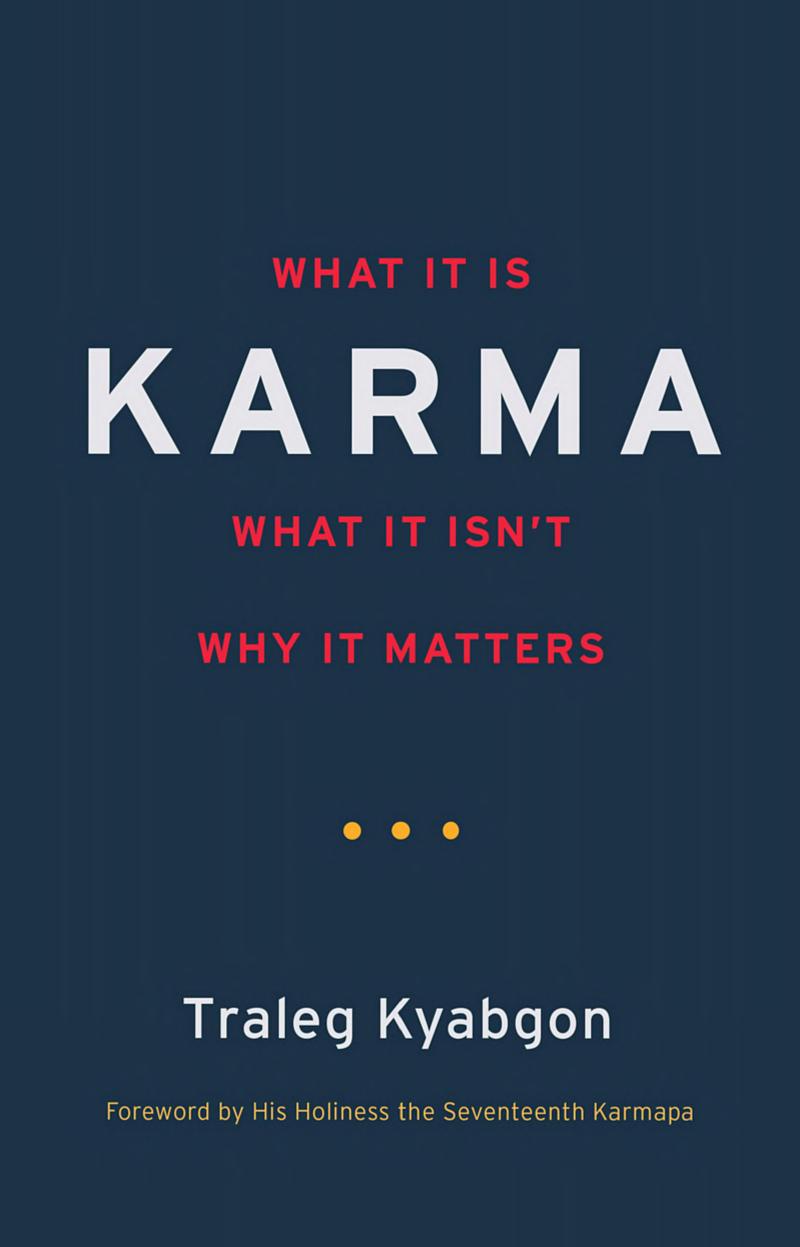Karma: What It Is, What It Isn't, Why It Matters by Traleg Kyabgon

Author:Traleg Kyabgon [Kyabgon, Traleg]
Language: eng
Format: epub, pdf
Publisher: Shambhala Publications
Published: 2015-06-29T14:00:00+00:00
6
MEANING IN LIFE AND THE FEAR OF DEATH
IN SPEAKING OF KARMA, WE ARE speaking about a philosophy that addresses the meaning in life, or the repercussions of what we do and think about in life. In speaking of rebirth, we are addressing the significance, if any, of death. Once again, we need to gather some background to these ideas, some context, in order to do justice to these pressing existential problems. When people look into whether life has meaning, generally it leads to an inquiry as to what sort of meaning it might have. If we inquire along the lines that meaning is pregiven, or a gift of God, or predetermined in some way, then the meaning of life comes to be seen as something discovered, as opposed to something created. For those who consider life’s meaning to be a created thing, a creative act, it remains entirely in the hands of the individual. It is something created at this intimate level. Life has the meaning we assign it, and nothing beyond that. The Buddhist position is to suggest that in order to make life meaningful, we need to become more aware, more conscious, more attentive; and by so doing, we gradually become more enlightened as to the purpose of life.
People no doubt have always contemplated the meaning of life in relationship with death. Death and after-death experiences are often treated in much the same context as the meaning of life. Of course, all the great religions of the world have tried to address the question of whether there is life after death, and if so, what sort of life can be expected. Some secular Western scholars have gone so far as to say that the origin of religion is to be found in the fear of death. The human fear of death, our sense of mortality, its oppressive inevitability, they suggest, gives rise to an enormous sense of insecurity that drives tremendous speculation, which eventually evolves into religious ideology. Whether this is true or not, the important point is that all the major religions have had to deal with this particular issue, and we cannot simply ignore the importance of it. Religion should not be dismissed as a form of wish fulfillment, as it commonly is. For instance, those religions pointing to heaven and hell, or an afterlife, or to the immortality of the soul, are said to provide comfort to people in the form of a promised eternal life. This is merely an avenue around death, it is said, making this particular life a little more bearable in all its present disadvantages. They might be called “afterlife compensations.” Our fear of extinction is thereby allayed, and there is nothing more to the whole matter of religion than this type of unsubstantiated delusion.
In the broader perspective, this analysis is not in fact correct, even granting its own premises. The religious speculation about life after death can in fact increase our fear of death and an afterlife, rather than lessen it.
Download
Karma: What It Is, What It Isn't, Why It Matters by Traleg Kyabgon.pdf
This site does not store any files on its server. We only index and link to content provided by other sites. Please contact the content providers to delete copyright contents if any and email us, we'll remove relevant links or contents immediately.
The Tao of Physics by Fritjof Capra(2276)
Human Design by Chetan Parkyn(2073)
The Diamond Cutter by Geshe Michael Roach(2061)
Feng Shui by Stephen Skinner(1940)
The Alchemy of Sexual Energy by Mantak Chia(1860)
Tao Te Ching by Lao Tzu(1842)
365 Tao: Daily Meditations by Ming-Dao Deng(1622)
Tao Tantric Arts for Women by Minke de Vos(1599)
Sun Tzu's The Art of War by Giles Lionel Minford John Tzu Sun(1541)
Sidney Sheldon (1982) Master Of The Game by Sidney Sheldon(1520)
Buddhism 101 by Arnie Kozak(1513)
Karma-Yoga and Bhakti-Yoga by Swami Vivekananda(1495)
The Analects of Confucius by Burton Watson(1436)
The Art of War Other Classics of Eastern Philosophy by Sun Tzu Lao-Tzu Confucius Mencius(1428)
Tao te ching by Lao Tzu(1366)
The Way of Chuang Tzu by Thomas Merton(1365)
The New Bohemians Handbook by Justina Blakeney(1355)
The Sayings Of by Confucius(1317)
Bless This House by Donna Henes(1272)
